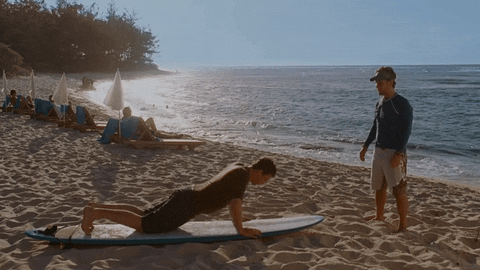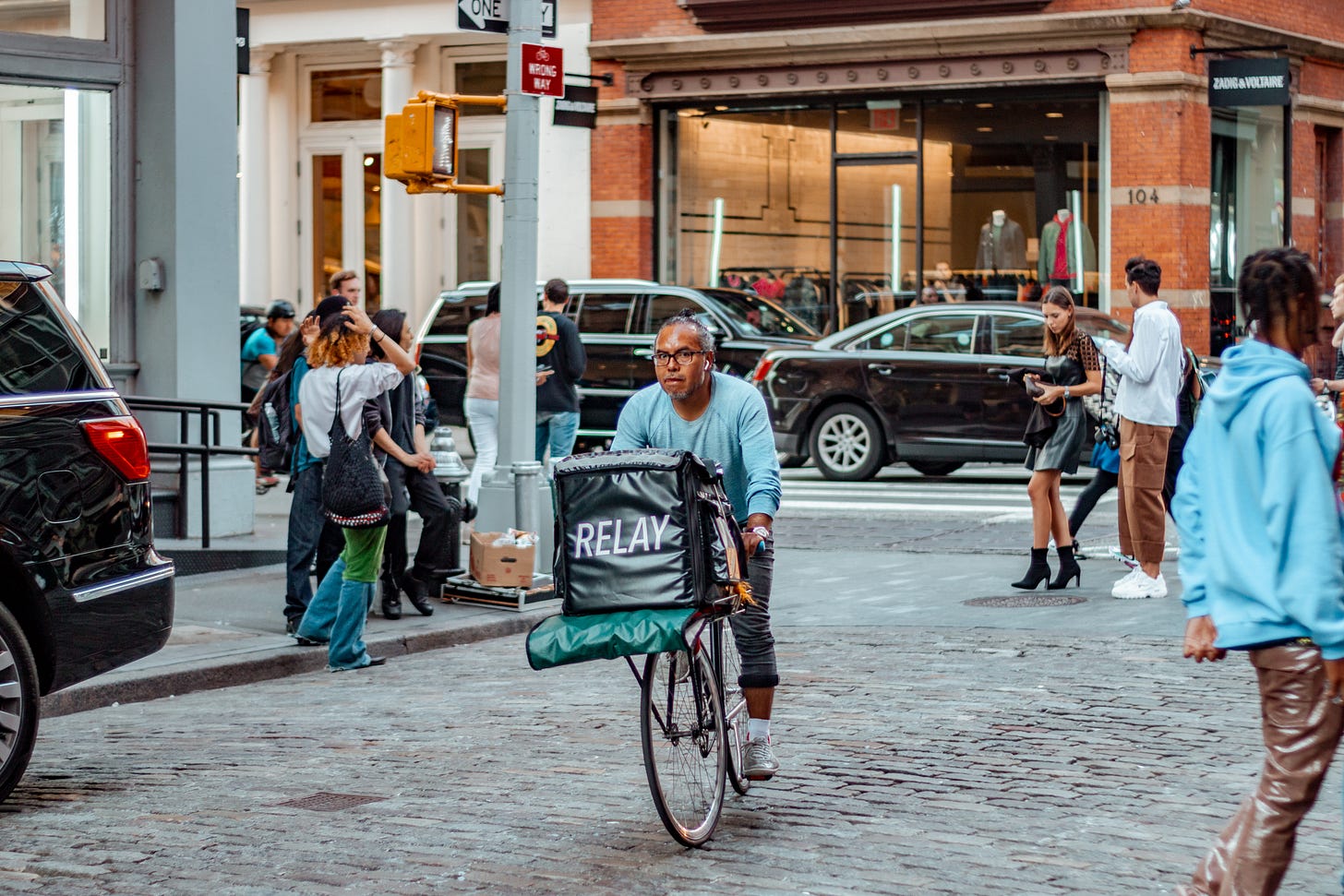Discern more so you can do less
The best definition of essentialism I’ve seen is “less but better”. It’s a paradigm flip in a world increasingly concerned with doing more and optimizing productivity. Essentialism takes the reductivist approach. It’s not about how to get more things done; it’s about how to get the right things done.
As author Greg Mckeown says, the way of the Essentialist is living by design and not by default.
“If you take one thing away from this book, I hope you will remember this: whatever decision or challenge or crossroads you face in your life, simply ask yourself, ‘What is essential?’ Eliminate everything else.”
Essentialism is the art of divorcing external noise from internal voice. The world is full of information but not all of it is useful. There are a million tasks you could cram into your day but not all of them are crucial.
Essentialism exposes my frequent stumbling blocks—taking on too much, underestimating completion times, and letting the cumulative chaos eat into more precious areas of my life.✓
The all-consuming pursuit of more
“There’s a word for trying to do everything all the time. Madness! I truly feel like it’s this perverse disease of thinking and it has an absolute monopoly right now. Do more. Do more. Get more. Fit in more. More more more.”
If I’m honest the above quote could characterize large parts of my life so far—but eventually, you become frighteningly aware of the enormous cost paid by those trying to do it all.
“Our whole society has become consumed by the undisciplined pursuit of more. The only way to overcome this problem is to change the way we think—adopt the mindset of only doing the things that are essential—and do it now.”
Less means more
Less means more while more = mediocre. There are times where this works in your favour: when ideating and experimenting, speed and incremental development are key. You can often develop better over time by doing more, faster, than by fastidiously mulling over each further attempt. This applies to the development of most skills. Writing ten moderate essays can teach you more than writing one perfect one. Practicing ten free throws will do more for your shooting mechanics than making one perfect three-pointer.
However, when it comes to life as a whole, we should prioritize value. If you only make time each day to tend to a dozen mediocre things, you will ultimately lead a life devoid of the things you consider most important.

Swap pressure for purpose
Be careful not to base your decision-making hierarchy on external pressure, but rather base your motivation and action on an internal clarity of purpose. The key idea here is the reduction of impulse. Creating pause is an art in itself. Between impulse and external stimuli, create moments of pause to determine what is truly essential.
As much as I harp on about discipline being the art of doing what must be done, equal attention must be paid to that very determination: what must be done? what is essential? It’s an idea I touched on in Issue 11.
“It’s a good idea to recognize the value of contemplation versus impulse.”
Our natural inclination is prioritizing in order to do more. Instead, the focus should be on doing less, more carefully.
Quality over quantity
We should relish missing out on the non-essential, or the Joy Of Missing Out (JOMO). I took note of an idea from Humble the Poet sometime last year in an interview where he suggested measuring success by the opportunities we get rather than the ones that yield result.
Take pride in the variety of opportunities life gives you—but be discerning in the responsibilities you accept and the tasks you undertake.
One of the great cons of modern life is the assumption that all tasks are of equal value. The issue with busy-ness is that the importance of each individual task is averaged out and we replace output with the feeling of effort.
Learn to live in the moment
Reduce the impulse to always have something to do. Technological delight has rapidly pushed us to a place where many of us have no idea what to do without external stimulation—downtime is when imagination gets engaged and true creativity happens.
“We are experiencing not just data overload, but also opinion overload with the data.”
In order to ponder, our subconscious needs to talk to the conscious and this cannot happen with constant, digital preoccupation.
Create time to think and explore
In the book Greg refers to the article The Five Regrets of the Dying, citing that the number two regret of the dying is working too much.
There is an unspoken hierarchy in our society about what is valuable; higher on that hierarchy are career success, fame, and wealth. Lower on the list is family, health, wisdom, and personal fulfillment.
Creating space to explore, think, and reflect is the antidote to nonessential busyness.
When I examine myself and my methods of thought, I come to the conclusion that the gift of fantasy has meant more to me than my talent for absorbing positive knowledge. — Albert Einstein

Ten essential thoughts
- Discern more and do less. Prioritize value to get results.
- Distinguish pressure from purpose.
- Don’t conflate effort with output. Busyness is not synonymous with utility.
- Learn the art of saying no and be okay with it—pay equal attention to the things you choose to do as you do the things you choose not to do. Be particular.
- Be aware of planning fallacy—predictions of the time required to complete a future task display an optimism bias and underestimate the time needed.
- Implement the life test mantra—ask yourself, “If I had a week left to live would I value this?”
- Newness is not news—monitor attention diverted to surfacing events. See-through the gloss. Discern news from noise.
- Evaluate your mental scale for true value. Consider where each task falls on a 10pt scale. Create space for the 8-10s. Discard or de-emphasize anything lower.
- Reduce compulsion to comment; join fewer calls. Attend fewer meetings.
- Reduce yourself to zero—devote your time only to essential missions; be consumed in your purpose.
If you have any other super tips for staying true to the essential and prioritising value, I’d love to hear your thoughts. Reply via email, leave a comment or send me a tweet!

Reading list
Books I’ve read/seen/will impulsively buy and add to my “to read” shelf on Goodreads. Recommendations from newsletter readers are always welcome:
- Essentialism - The Disciplined Pursuit of Less by Greg Mckeown - impulsively bought, as the best reads always are.
- Resilience & Resistance by Alex Fefegha - seen. An important article by a creative technologist and good friend, sharing personal stories and highlighting the balance of resilience and resistance within the Black British community.
- The End of Policing by Alex Vitale - impulsively bought. A topical analysis of the police system, considering its origins and the need for rapid development/reconstruction.
Things I’m loving
Films and shows:
- Downsizing - I was coerced into watching this boring movie about a khaki-wearing everyman who learns to be a nice person, though I fell asleep because the narrative drive had all the direction of a driverless car with faulty sensors. That said, it posed some really interesting questions about the sustainability of our planet, possible solutions to reducing human waste, and also the realities of science-enabled utopia.
- Power Rangers (2017) - I’m tired of people sleeping on this gem. This was a decent movie and did the job of staying faithful to the nostalgia of the original series. It’s not Enders Game or anything, but I think it’s pretty great.
Resources:
- JazzKeys can turn your words into jazz music, and that’s just about as cool as the internet is going to get. It’s a fun way to get a little work done if you’re struggling for motivation.
- I’ve been combining Audible and Kindle Unlimited to maximise my time and read a lot more and I’m loving it. Use those links for a free book and 30-day trial with Audible or 60-day free trial of Kindle Unlimited.✓
Let me know if you have any suggestions for next week. Feedback is welcome too! Email me or drop me a tweet here.
Until next time!!






